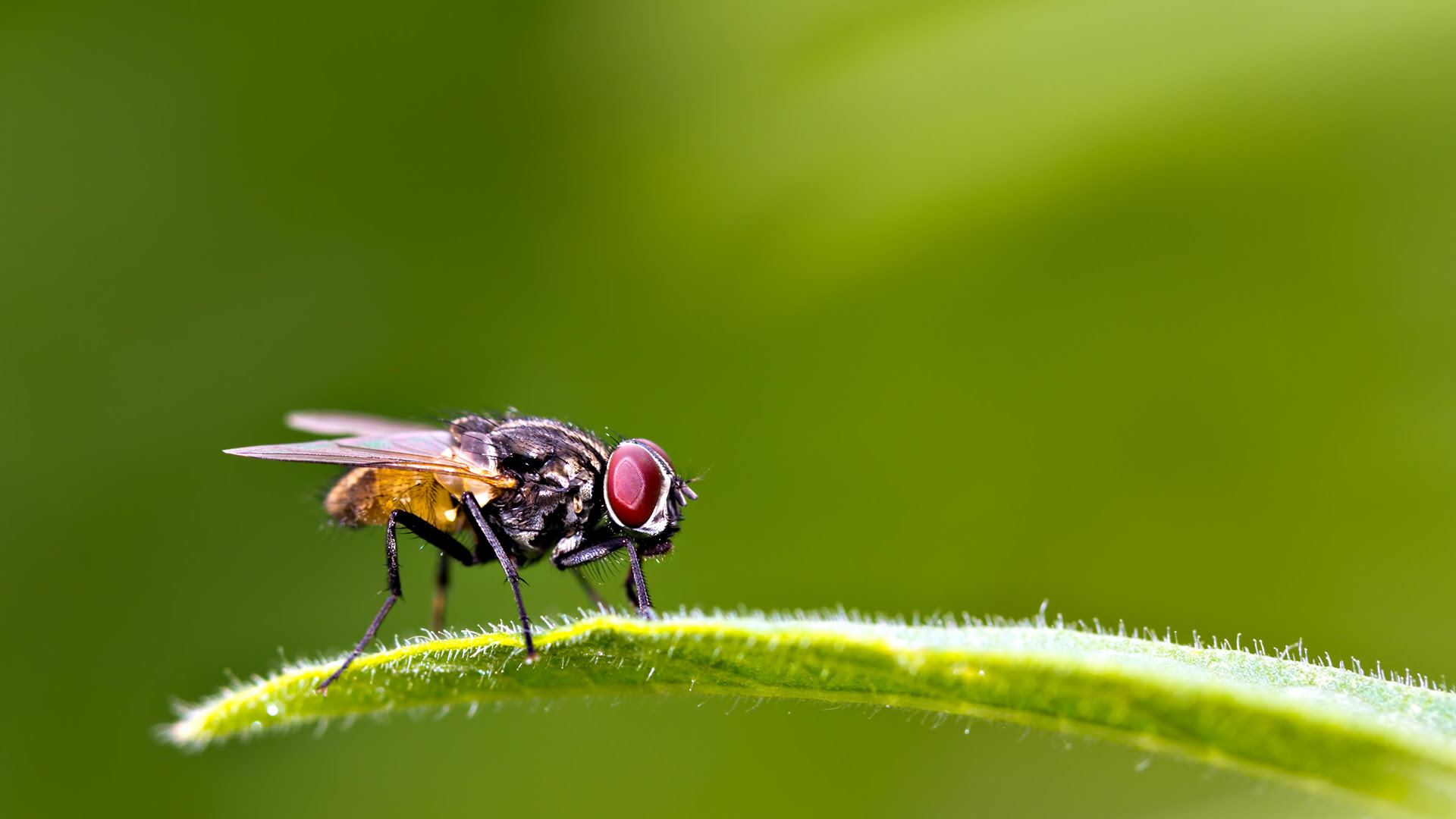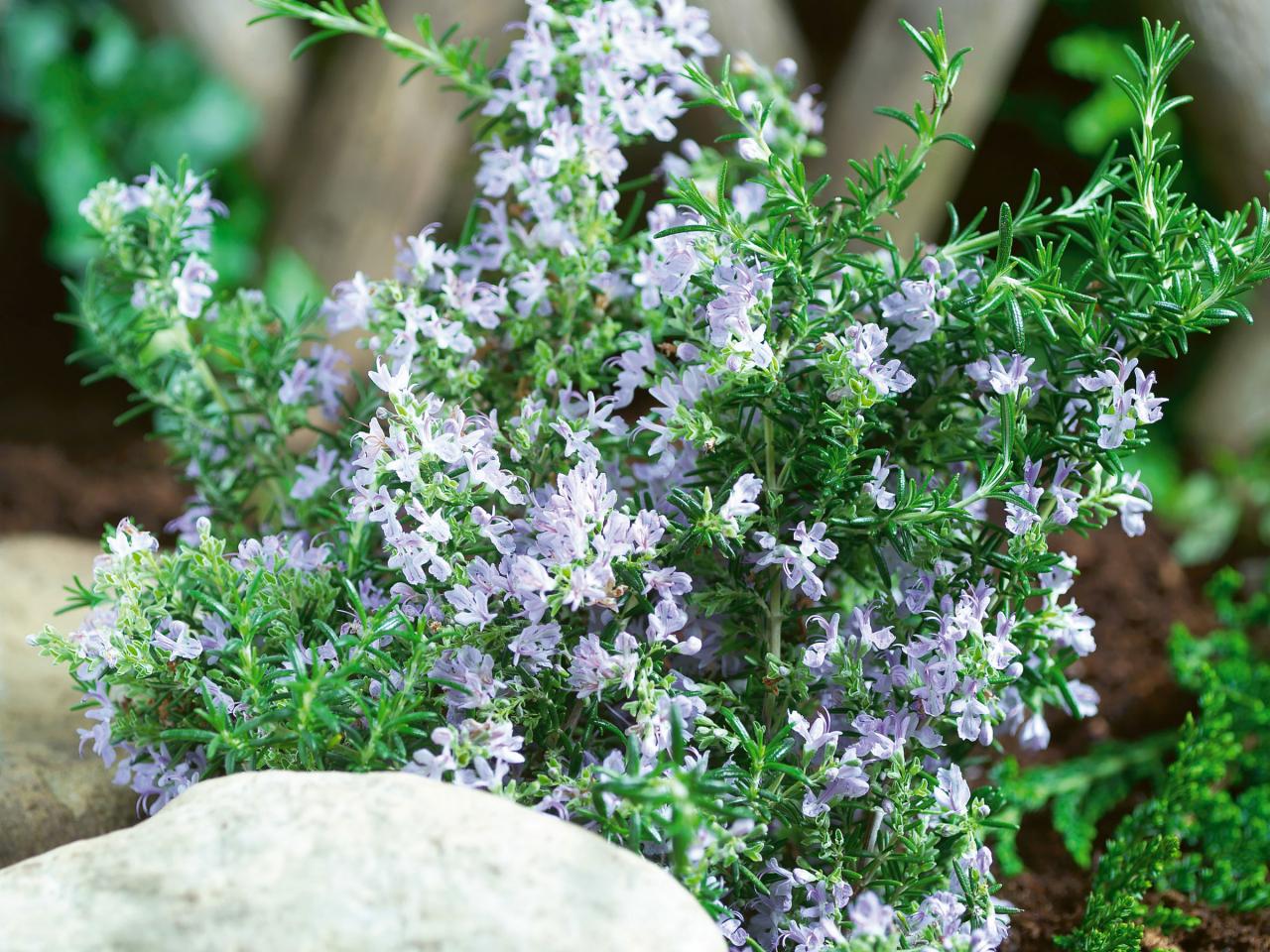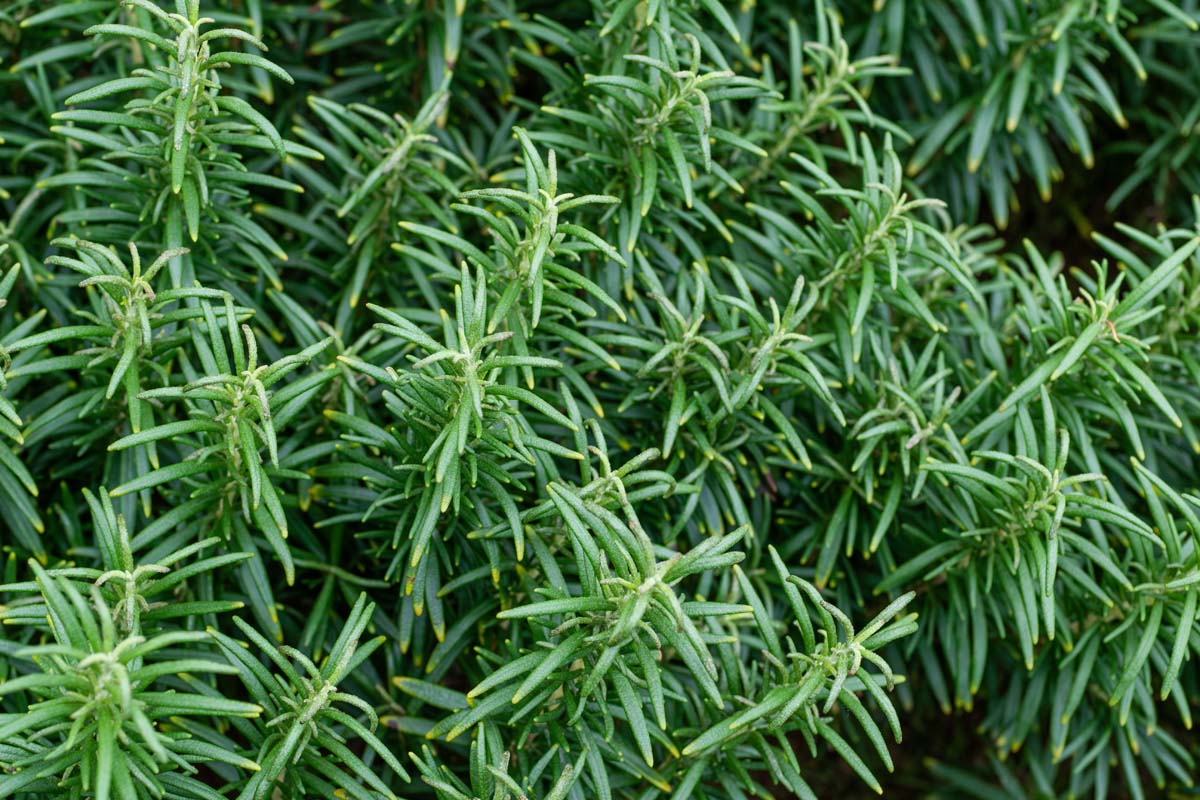Home>Gardening News and Trends>Latest News>What Insects Does Rosemary Repel


Latest News
What Insects Does Rosemary Repel
Modified: January 22, 2024
Discover the latest news on which insects rosemary can repel. Find out how this natural remedy can protect your garden and home from unwanted pests.
(Many of the links in this article redirect to a specific reviewed product. Your purchase of these products through affiliate links helps to generate commission for Chicagolandgardening.com, at no extra cost. Learn more)
Table of Contents
Introduction
Rosemary is not just a flavorful herb used in cooking; it also possesses natural insect-repelling properties. For centuries, people have been using rosemary to ward off various pests, taking advantage of its strong aroma and potent compounds. Whether you are trying to keep mosquitoes away during a backyard barbecue or prevent pesky flies from invading your home, rosemary can be a natural and effective solution.
With its evergreen foliage and pleasant scent, rosemary has become a popular choice for both culinary and medicinal purposes. But what makes rosemary a reliable repellent for insects? The answer lies in its essential oil, which contains compounds like cineole, camphor, and terpenes that insects find highly offensive.
In this article, we will explore the different insects that rosemary can repel and how to make the most of this herb’s insect-repelling properties. So, if you’re looking for a natural and eco-friendly way to keep bugs at bay, read on to discover the versatile benefits of rosemary.
How Rosemary Repels Insects
Rosemary’s ability to repel insects can be attributed to the powerful compounds found in its essential oil. When the foliage of rosemary is crushed or disturbed, it releases these compounds into the air, creating a strong aroma that insects dislike. The scent acts as a natural deterrent, keeping pests away from your space.
One of the key compounds found in rosemary oil is cineole, also known as eucalyptol. Cineole has been found to effectively repel mosquitoes, flies, and gnats. It disrupts the insects’ ability to locate their target through their sense of smell, making them less likely to approach areas infused with the scent of rosemary.
Additionally, rosemary contains camphor, another powerful compound known for its insect-repellent properties. Camphor is highly effective against moths, ants, and even aphids. The strong odor of camphor confuses and repels these insects, preventing them from causing damage to your plants or invading your living space.
Terpenes, a group of volatile organic compounds found in rosemary, further enhance its insect-repelling properties. Terpenes have been found to deter fleas and ticks, making rosemary a natural alternative to chemical-laden flea and tick repellents. By incorporating rosemary into your pet’s grooming routine or using it in your home, you can naturally repel these pests and provide a safer environment for your furry friends.
The combination of these compounds makes rosemary a versatile and effective insect repellent. From pesky mosquitoes to nuisance flies and destructive aphids, rosemary can help create a pest-free environment without the need for harmful chemicals or pesticides.
Mosquitoes
Mosquitoes can quickly turn a pleasant outdoor gathering into an itchy affair. These blood-sucking pests are not only irritating, but they can also transmit diseases such as malaria, dengue fever, and Zika virus. Fortunately, rosemary can come to the rescue.
The strong aroma of rosemary acts as a natural repellent for mosquitoes. The scent masks the carbon dioxide and lactic acid that our bodies emit, which are the key signals that attract mosquitoes. By planting rosemary in your garden or using rosemary oil as a topical repellent, you can effectively keep mosquitoes at bay.
To make a natural mosquito repellent spray with rosemary oil, follow these simple steps:
- Mix 10 to 15 drops of rosemary essential oil with one cup of water.
- Pour the mixture into a spray bottle and shake well to combine.
- Spray the solution onto your skin, clothing, and outdoor furniture.
Remember to reapply the repellent every few hours for maximum effectiveness, especially if you’re spending extended periods outdoors.
In addition to using rosemary as a repellent, you can also incorporate it into your outdoor landscaping. Planting rosemary near windows and entrances can help deter mosquitoes from entering your home. The fragrant foliage will not only add beauty to your garden but also provide a natural barrier against these unwanted pests.
By utilizing the power of rosemary, you can create a mosquito-free environment and enjoy your outdoor activities without the annoyance and health risks associated with these pesky insects.
Flies
Flies can be a major annoyance, both indoors and outdoors. Whether they are buzzing around your food or constantly landing on your skin, these pesky insects can quickly ruin your day. Luckily, rosemary can help keep flies at bay.
The strong aroma of rosemary is highly effective in repelling flies. Flies are sensitive to scents, and the potent fragrance of rosemary is enough to deter them from landing on your food or buzzing around your living space. You can place fresh rosemary sprigs in areas where flies are commonly found, such as near entrances, windows, or food preparation areas, to keep them at a distance.
Another way to utilize rosemary to repel flies is by making a simple homemade fly repellent spray. Here’s how:
- Boil a cup of water.
- Add a handful of fresh rosemary leaves into the boiling water and let it simmer for 10 minutes.
- Remove the pot from heat and allow the solution to cool.
- Strain the liquid into a spray bottle.
- Spray the solution around your house, especially in areas where flies are abundant.
Repeat this process as needed to maintain an effective barrier against flies.
In addition to repelling flies, rosemary also has larvicidal properties that can help control fly populations. By discouraging flies from laying their eggs in your surroundings, you can prevent future infestations and reduce their overall numbers.
With rosemary as your ally, you can keep flies away and enjoy a fly-free environment both indoors and outdoors.
Gnats
Gnats are tiny flying insects that can quickly become a nuisance, especially in humid and moist environments. These pesky bugs can swarm around your face, contaminate your food, and cause irritation with their bites. However, rosemary can help repel gnats and keep them away from your living spaces.
The strong scent of rosemary acts as a natural repellent for gnats. Simply placing potted rosemary plants around your patio or windows can help deter these tiny pests. The aromatic foliage of rosemary emits a fragrance that gnats find unpleasant, making it less enticing for them to linger near you or your belongings.
If you’re dealing with a gnat problem indoors, you can create a homemade gnat repellent spray using rosemary essential oil. Here’s a simple recipe:
- In a spray bottle, combine 10 to 15 drops of rosemary essential oil with one cup of water.
- Shake the bottle well to ensure the oil is evenly dispersed.
- Spray the solution in areas where gnats are present, such as near windows, doorways, and plants.
Alternatively, you can use fresh rosemary sprigs by placing them in common gnat-infested areas. Gnats will be deterred by the strong smell and avoid those spaces.
It’s important to note that gnats are attracted to damp environments, so it’s crucial to address any underlying moisture issues in your space. Keep your space well-ventilated, fix any leaks, and minimize standing water to reduce the likelihood of gnat infestations.
By incorporating rosemary into your living environment, you can naturally repel gnats and enjoy a gnat-free space.
Moths
Moths are notorious for causing damage to clothes, fabrics, and stored food items. These nocturnal insects are drawn to the light and can quickly infest your closets, pantry, or other storage areas. Fortunately, rosemary can help repel moths and protect your belongings.
The strong aroma of rosemary is highly effective in deterring moths. The scent acts as a natural repellent, making your storage spaces less enticing for these pests. You can place dried rosemary leaves or sachets filled with rosemary near your clothing or pantry items to keep moths at bay.
In addition to repelling moths, rosemary has been found to have insecticidal properties against moth larvae. The strong odor of rosemary disrupts the life cycle of moths, preventing them from laying eggs and causing further damage to your belongings. By incorporating rosemary as a natural preventive measure, you can safeguard your clothes and food from these destructive insects.
Here are some additional tips to effectively repel moths using rosemary:
- Hang bouquets of dried rosemary in your closet to provide continuous protection against moth infestations.
- Make a satchel using cheesecloth and fill it with dried rosemary leaves. Place the sachet in your drawers or storage containers.
- Combine dried rosemary with other natural moth-repellent ingredients such as lavender, cloves, or cedar chips to amplify the protective effect.
Regularly replace or refresh the rosemary leaves or sachets to maintain their potency. Additionally, ensure that your storage areas are clean and free from food crumbs or spills that could attract moths.
By harnessing the power of rosemary, you can keep moths away and preserve your clothing and food items from unwanted damage.
Ants
Dealing with ant infestations can be a frustrating experience. These tiny creatures can quickly invade your home, especially in search of food sources. Fortunately, rosemary can help repel ants and keep them from infiltrating your living spaces.
The strong aroma of rosemary acts as a natural deterrent for ants. The scent disrupts the pheromone trails that ants use to communicate with each other, making it difficult for them to navigate and locate food sources. By placing dried rosemary leaves or sachets near entry points or areas where ants are commonly seen, you can create a barrier that ants are less likely to cross.
Another effective way to repel ants using rosemary is to make a DIY ant spray:
- Boil a cup of water.
- Add a handful of fresh rosemary leaves into the boiling water and let it steep for 15 minutes.
- Strain the liquid and pour it into a spray bottle.
- Spray the solution along ant trails, entry points, and other areas where ants are present.
This simple yet potent spray will not only repel ants but also leave a refreshing scent in your home.
For outdoor ant control, consider planting rosemary around your garden or in pots near entryways. This will create a natural ant barrier and discourage them from entering your outdoor living areas.
As with any pest control, it’s important to address the root cause of the ant infestation, such as cleaning up food spills, sealing entry points, and eliminating potential food sources. Combining these measures with the power of rosemary will help keep ants at bay and maintain a pest-free environment.
Aphids
Aphids can wreak havoc on your plants and gardens, sucking sap from the leaves and causing stunted growth. These tiny insects multiply quickly and can quickly infest your greenery. However, rosemary can come to the rescue and help repel aphids.
Rosemary’s strong scent acts as a natural deterrent for aphids. The fragrance of rosemary overwhelms and confuses aphids, disrupting their feeding patterns and reproductive cycle. By strategically placing pots of rosemary near your vulnerable plants or infested areas, you can create a barrier that aphids are less likely to cross.
Another effective way to repel aphids using rosemary is by creating a homemade aphid spray. Here’s a simple recipe:
- In a spray bottle, combine one tablespoon of rosemary essential oil with one quart (about one liter) of water.
- Add a few drops of liquid dish soap to help the solution adhere to the plants.
- Shake the bottle well to mix the ingredients thoroughly.
- Spray the solution onto the leaves of the infested plants, making sure to cover both sides of the leaves.
Repeat this process every few days to deter aphids and prevent further infestations.
To enhance the effectiveness of rosemary in repelling aphids, you can also companion plant it alongside susceptible plants. The aromatic foliage of rosemary will act as a natural deterrent, protecting your plants from aphid attacks.
Regularly inspect your plants for signs of aphid infestations, such as curled leaves, distorted growth, or the presence of sticky residue known as honeydew. Early detection can help you take prompt action and prevent the infestation from spreading.
By harnessing the power of rosemary, you can naturally repel aphids and maintain the health and vitality of your plants and gardens.
Fleas
Fleas are a common nuisance, especially for pet owners. These tiny, blood-sucking insects can cause itching, discomfort, and even transmit diseases. While there are many chemical treatments available, rosemary offers a natural alternative to repel fleas.
The strong scent of rosemary acts as a natural deterrent for fleas. The aroma is particularly effective in repelling adult fleas and discouraging them from jumping onto your pets and infesting their fur. You can create a homemade flea repellent spray using rosemary essential oil:
- In a spray bottle, combine 10 to 15 drops of rosemary essential oil with one cup of water.
- Shake the bottle well to ensure the oil is evenly dispersed.
- Spray the solution onto your pet’s coat, focusing on areas that are commonly targeted by fleas, such as the neck, back, and legs.
- Remember to avoid spraying near your pet’s eyes, nose, or mouth. Instead, use a cloth to gently apply the solution on their face.
Repeat this process every few days or as needed to maintain an effective barrier against fleas. Additionally, you can create a rosemary-infused rinse by steeping rosemary leaves in warm water, straining the mixture, and using it as a final rinse after your pet’s bath.
For a preventive approach, consider planting rosemary in your garden or outdoor areas. This will act as a natural deterrent to fleas, reducing the likelihood of infestations in your outdoor spaces.
It’s important to note that while rosemary can help repel fleas, it may not eliminate an existing flea infestation. If your pet already has fleas, consult with a veterinarian for appropriate treatment options to address the infestation thoroughly.
By incorporating rosemary into your pet care routine and outdoor spaces, you can naturally repel fleas and provide a safer environment for your furry friends.
Ticks
Ticks are small, blood-sucking parasites that can transmit diseases to both humans and animals. Preventing tick bites is crucial for maintaining good health, and rosemary can serve as a natural repellent against these troublesome pests.
The intense aroma of rosemary acts as a deterrent for ticks. The strong scent masks the natural human or animal odors that attract ticks, making it less likely for them to latch onto you or your pets. By using rosemary as a natural repellent, you can reduce the risk of tick bites and potential infection.
To create a homemade tick repellent spray using rosemary, follow these steps:
- Mix 10 to 15 drops of rosemary essential oil with one cup of water.
- Pour the mixture into a spray bottle and shake well to combine.
- Thoroughly spray the solution on your skin, avoiding your eyes and mouth, before entering tick-prone areas.
- If using on pets, spray the solution onto their fur, focusing on areas where ticks are commonly found, such as around the ears, neck, and legs.
Reapply the repellent every few hours, especially if you’re spending extended periods outdoors or in areas with heavy tick presence.
In addition to the spray, consider planting rosemary near your outdoor living spaces or creating a barrier of potted rosemary plants. This will help deter ticks from approaching your home and reduce their population in your immediate vicinity.
It’s important to note that while rosemary can provide some level of protection against ticks, it should not be the sole defense. Take additional precautions such as wearing light-colored clothing, tucking pants into socks, and performing thorough tick checks after spending time outdoors in tick-infested areas.
If you or your pets have been bitten by a tick, it’s essential to remove it properly and monitor for any signs of tick-borne diseases. Consult with a healthcare professional or veterinarian for guidance on proper tick removal techniques and potential follow-up actions.
By utilizing the natural repellent properties of rosemary, you can help protect yourself and your loved ones from tick bites and the potential risks associated with them.
Conclusion
Rosemary is not only a delightful herb for culinary use, but also a powerful natural insect repellent. Its strong aroma and potent compounds make it an effective deterrent against a variety of pesky insects. From mosquitoes and flies to gnats and moths, rosemary can help keep your outdoor gatherings enjoyable and your indoor spaces free from unwanted bug infestations.
By utilizing rosemary in different forms such as sprays, sachets, or companion planting, you can harness its insect-repelling properties. The essential oils and compounds found in rosemary, including cineole, camphor, and terpenes, work together to repel insects and create a barrier that pests are less likely to cross.
Whether you’re dealing with mosquitoes during summertime, flies buzzing around your kitchen, or an aphid infestation in your garden, rosemary can be a natural and eco-friendly solution. Its effectiveness as an insect repellent, coupled with its pleasant scent, makes it an excellent alternative to chemical-laden repellents.
Remember to follow the recommended application methods and reapply the rosemary-based repellents as needed to maintain their effectiveness. Keep in mind that while rosemary can repel insects, it may not completely eliminate an existing infestation. If you’re dealing with a severe insect problem, it’s advisable to seek professional assistance or consult with a pest control expert.
Incorporating rosemary as a natural insect repellent not only protects you, your family, and your pets, but also contributes to a sustainable and chemical-free approach to pest management. So, embrace the power of rosemary and enjoy a bug-free environment!








